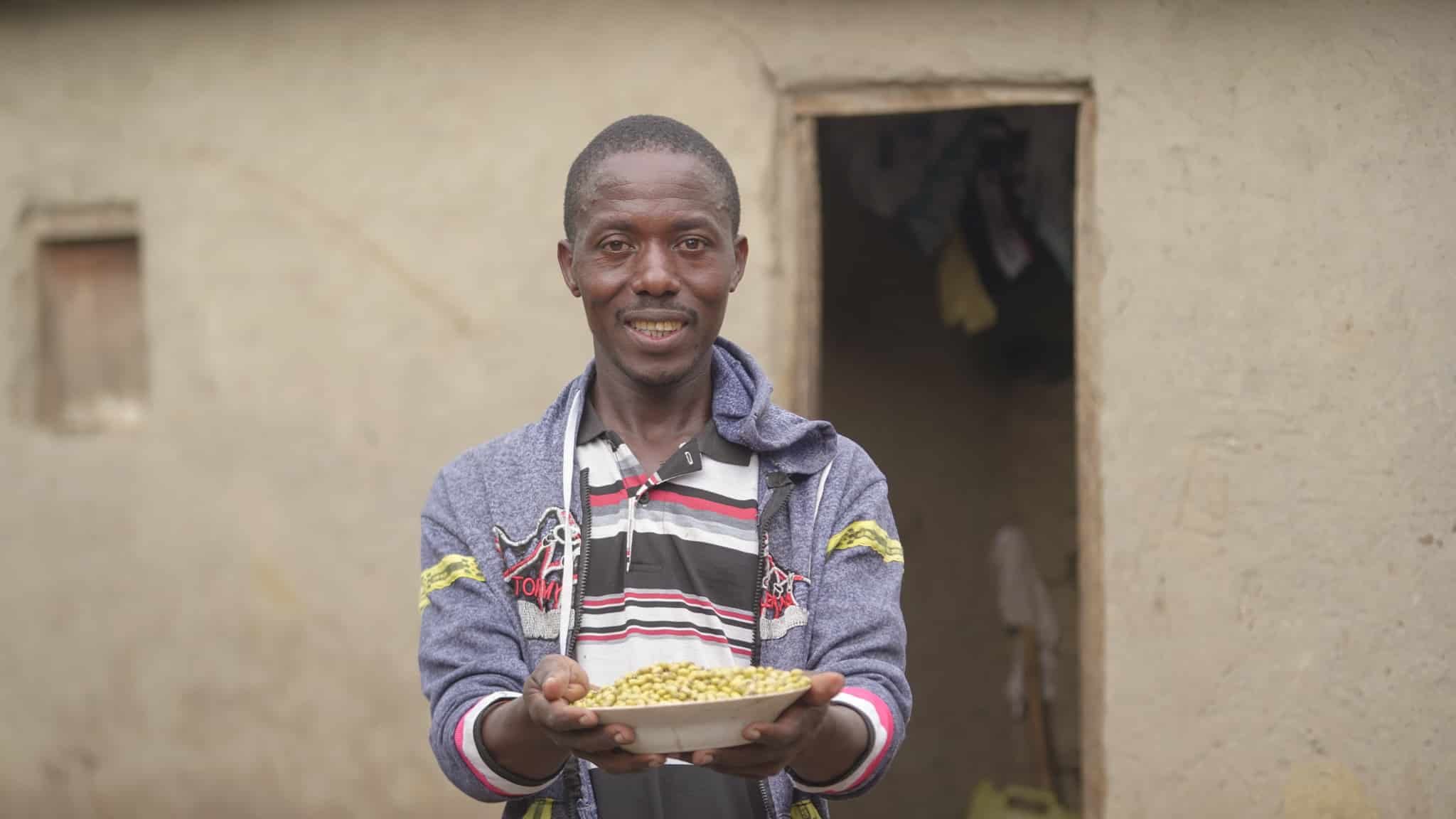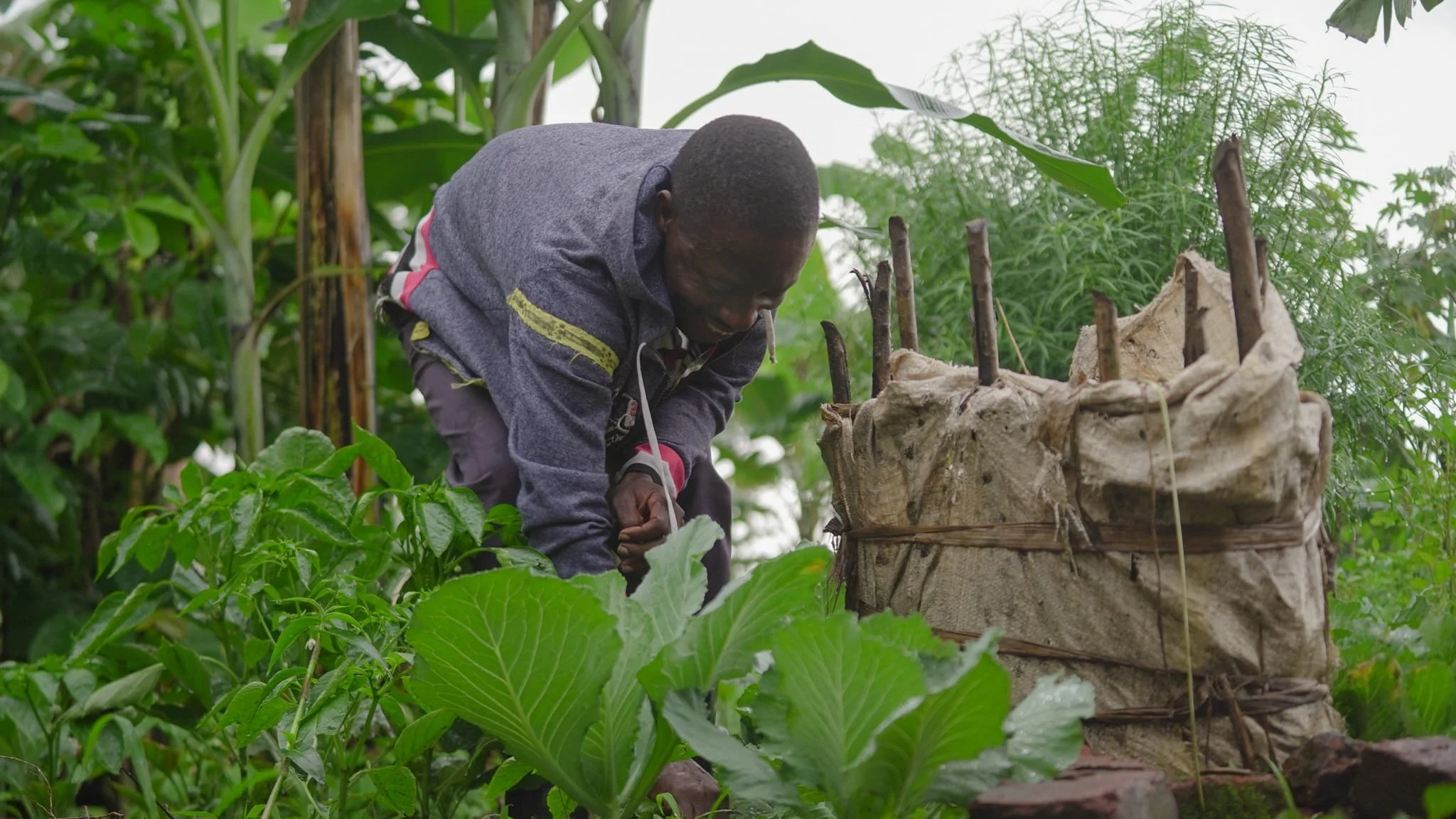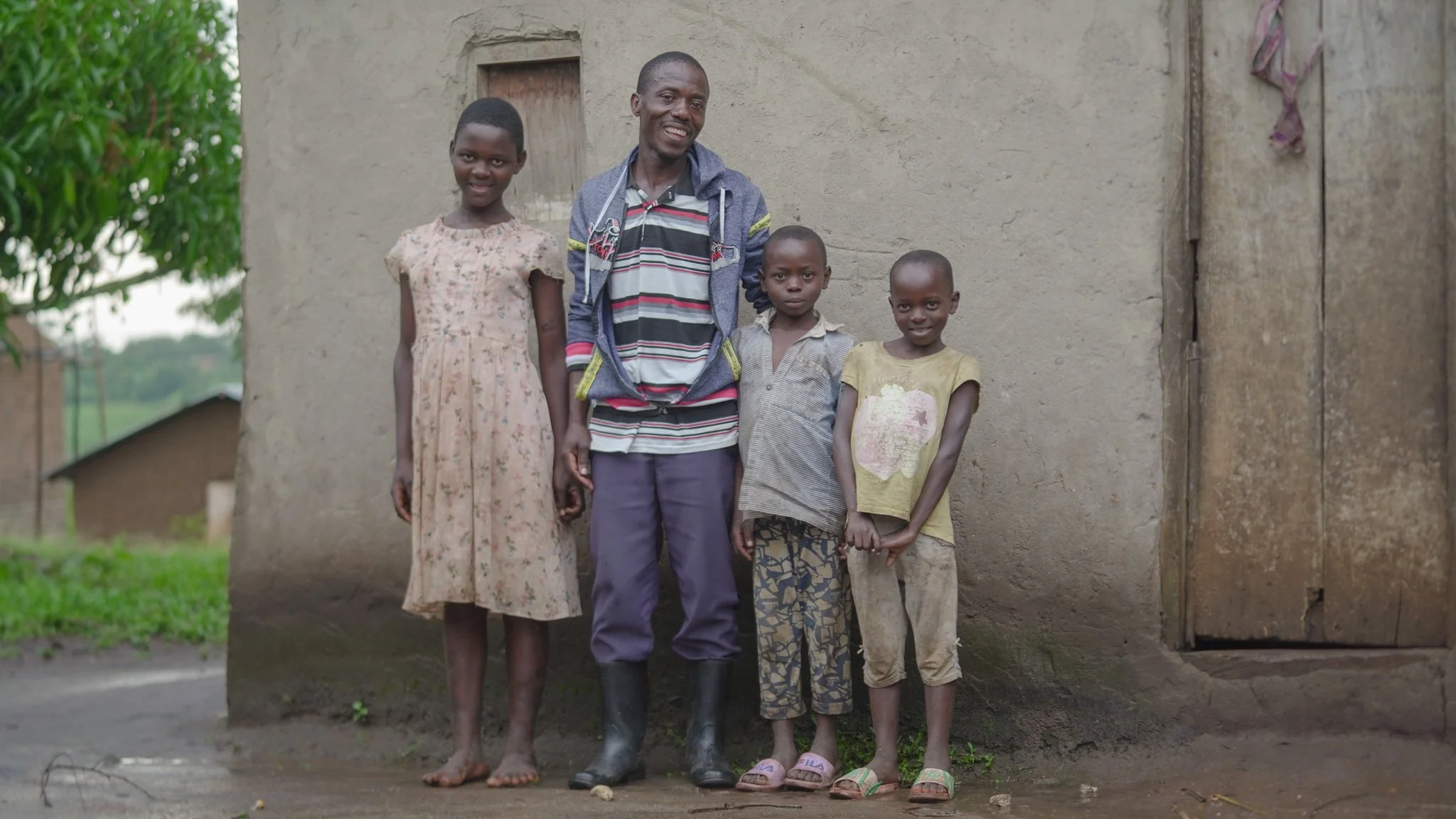Robertson shows his bean harvest in Kagadi district
A typical day for Robertson, a father of three from a remote village in Kagadi, begins with tending to his crops and vegetable garden. Hailing from a family of subsistence farmers, right from childhood, Robertson diligently learned farming techniques passed down to him and never shied away from working long hours for a good harvest. But irrespective of his efforts, productivity remained low, both for him and other farmers in his village. “I have been a farmer all my life. We used traditional farming methods such as bush burning and seed broadcast sowing.” Roberston said. He discovered that this could change with modern techniques and better seeds while attending Raising The Village’s (RTV) training on Good Agronomic Practices (GAP).
RTV partnered with Robertson’s community in 2022 through the “From Last Mile Into Possibilities” (FLIP) project with support from the Government of Canada through Global Affairs Canada (GAC). During the initial community consultation, traditional farming practices and high input costs were identified as critical bottlenecks for improving agriculture output and income. Additionally, frequent illnesses due to poor sanitation and lack of access to clean water and health services were barriers for families to invest time in income-generating activities. “People didn’t know about good sanitation and the importance of cleanliness,” Robertson said.
Robertson working in his vegetable garden.
A comprehensive plan was prepared with the community to counter these issues through an evidence-backed, multi-pronged approach. Training sessions on practical knowledge and quality inputs on modern farming practices were provided to improve yields. At the same time, awareness of hygiene and sanitation practices, access to clean water, and essential health services helped the community tackle scarcity and time-sapping barriers. Saving and credit-providing groups were formed to create sustainability combined with gender equality sessions to promote inclusive and equity-driven community leadership.
Robertson and his three children at their home in Kagadi district.
This multi-pronged approach soon bore results. “I received 12 vegetable seeds and beans and maize varieties. I sowed the vegetables in my small garden using the newly learnt methods and harvested more than I have ever before,” Robertson said. His experience was not isolated. 92% of RTV Partner Households graduating in 2022 consumed vegetables grown in their own garden, compared to 32% of their peers, promoting food security. The community soon formed a Village Savings and Loan Association (VSLA) to pool savings from their surplus income and provide affordable credit to members. Utilizing this opportunity, Robertson bought a piglet to build livestock assets.
The partnership between RTV and Roberson’s village has been fruitful. Household vegetable gardens have improved food security, modern farming practices are resulting in better yields, and access to clean water is reducing waterborne infections and the time spent fetching water. ” Partnering with RTV has improved agriculture, brought health services closer and improved our sanitation and community well-being,” Robertson concludes.
Be part of our journey. Support last-mile communities by supporting Raising The Village.



